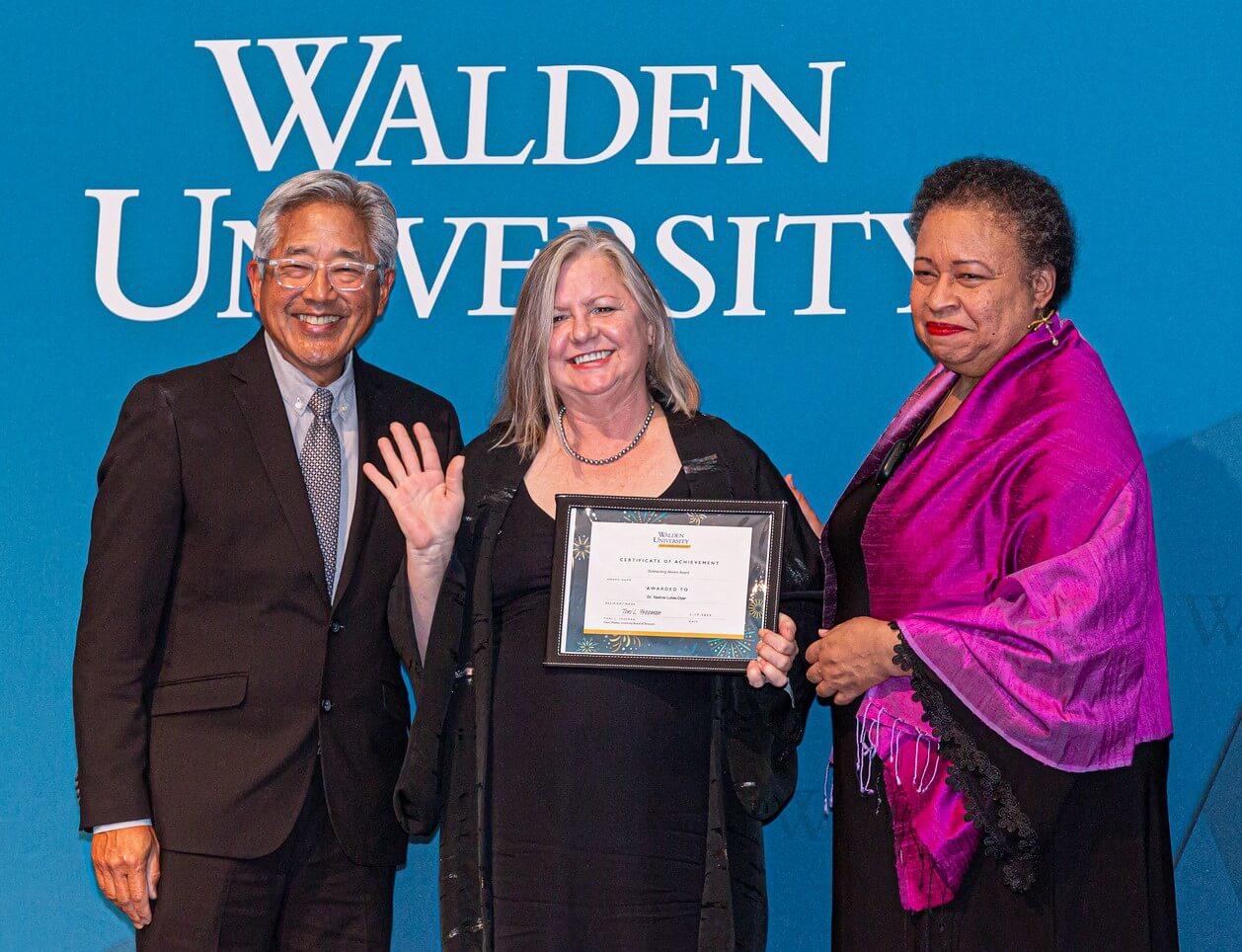When Dr. Nadine Lukes-Dyer ’18 decided to take her life in a different direction—to redefine herself—Walden University was part of that path: to a bachelor's, a master’s, and a PhD in Psychology. Now she is a faculty member at Walden and a social worker in Los Angeles County.
Prior to Walden, she was a graphic designer with a degree from a top fashion school. However, she was so disabled by exposure to industrial chemicals that she couldn’t walk without mobility aids for nine years. She was divorced and starting over with just $300, her clothing and furniture, and her teenage son. Enrolling was something she did as much for him as for herself.
“I had to show him that despite everything that happened, I could still step up and rebuild my life,” she says. “Probably the most important lesson I ever taught him was that whatever happens, you hold your head high and you overcome it.”
Earning Three Walden Degrees
At Walden there was a clear path for her to complete a second bachelor’s degree, this time in Psychology, and continue seamlessly into the master’s and PhD program. Earning degrees at each level, makes her just one of more than 50 alumni to “three-peat” at Walden, where many programs began at the doctoral level and then expanded to master’s and undergraduate.
As a doctoral student, she did her dissertation on “Social Isolation Risk Among Older Adults Who Live Alone,” which has more than 1,000 downloads on ScholarWorks. The topic was inspired by her aging father, whom she paused her studies to help care for. “As people age, it gets harder to interact with people because their mobility is limited, they become homebound, and it’s more difficult to meet new people,” she says. “There’s also the fear of the unknown. It’s hard to go to the senior center and say, ‘I’m lonely. I need some friends.’”
Social isolation puts older adults at increased risk of depression, weakened immune systems, cognitive decline, and other mental and physical challenges. Those with positive relationships can live longer lives with a greater sense of purpose. The most surprising thing to emerge from Dr. Lukes-Dyer’s research was that half of her participants were estranged from at least one child. “In some cases, it was a history of substance abuse. Even if they were sober now, they had done sufficient damage that their children would never forgive them.”
This is something she sees now as a social worker assisting disabled children and adults in rural areas of greater Los Angeles. It gives her the opportunity to connect her research to her practice.
Teaching and Learning at Walden
As a graduate and faculty member at Walden, Dr. Lukes-Dyer emphasizes the importance of making connections.
“Online education can be lonely, especially your dissertation,” she says. “It’s really important to have people who understand, who can go through it with you, and who you can bounce ideas off of.”
Dr. Lukes-Dyer made several friends at Walden and was even joined by one at the Board of Directors Honors and Awards ceremony when she received the university’s Outstanding Alumni Award.
As a faculty member, she hosts optional Zoom sessions to bring together her current and former Developmental Psychology students.
“We talk about current topics through the lens of psychology,” says Dr. Lukes-Dyer. Discussions with students around the world have included suicide by cop and human composting. “If you have a graduate degree, you need to understand that there are multiple ways of looking at everything. You need to be able to have quality academic debate.”
As she reflects on her journey and those of her students, she concludes that “Education is the greatest gift you can give yourself.”
Dr. Nadine Lukes-Dyer (center) receives the Outstanding Alumni Award from Board of Directors Chair Toni Freeman (right) and board member John Kobara (left).




